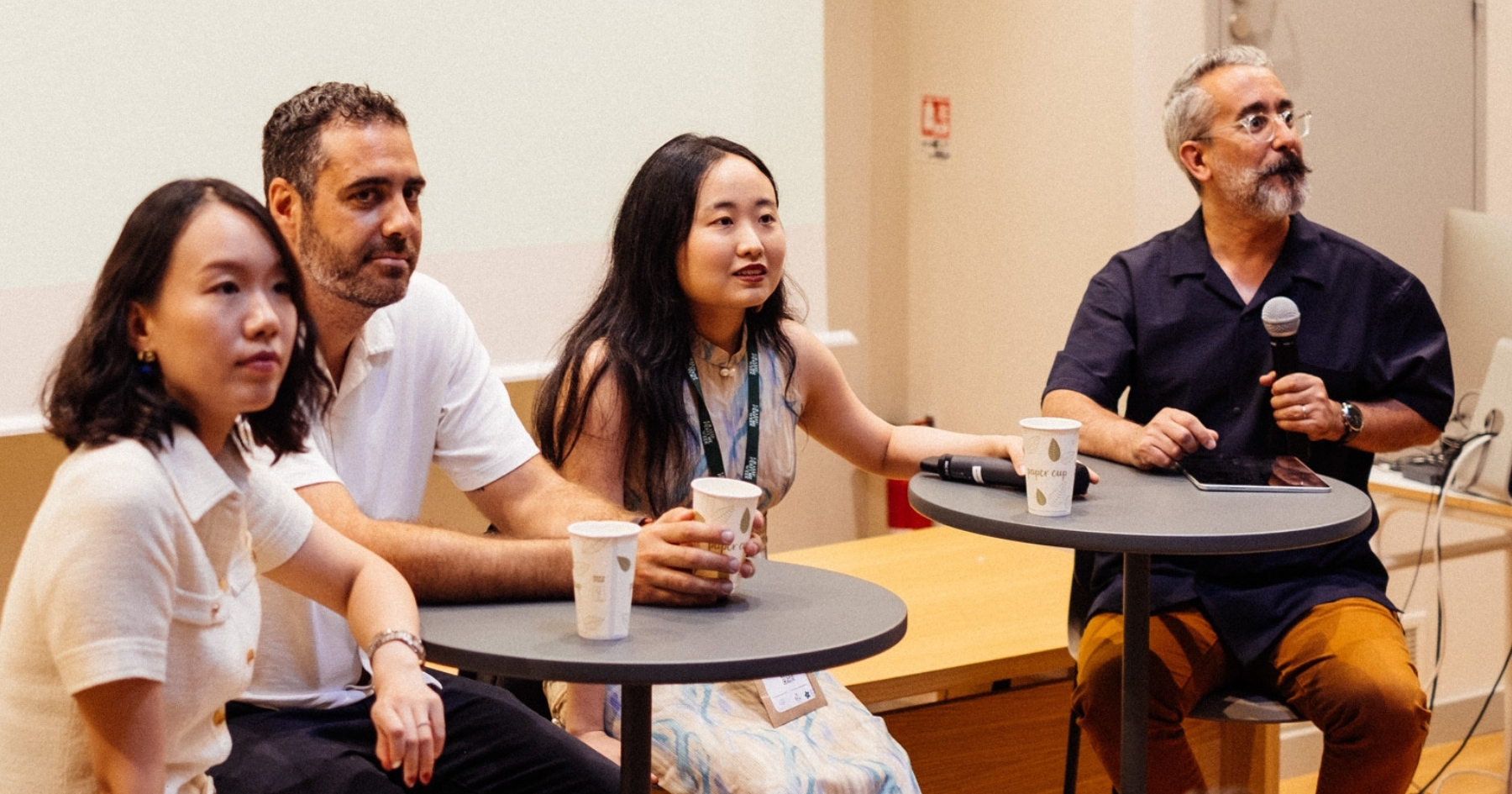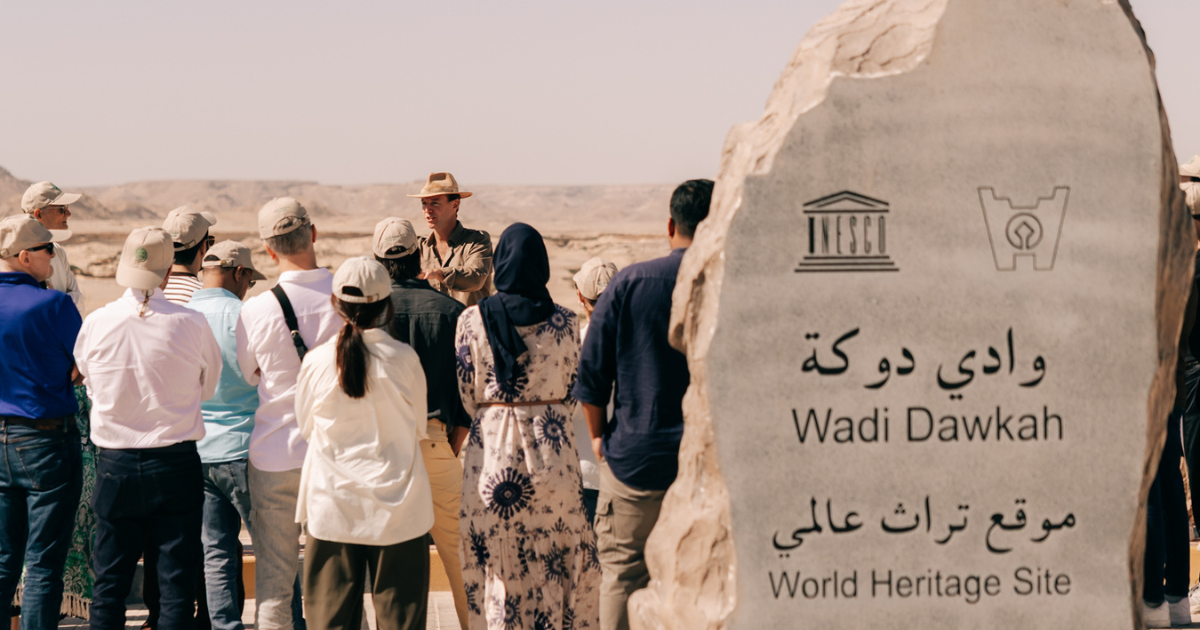Cette publication est également disponible en :
Français
Editorial partnership
Frankincense, bakhoor, attars: perfume is deeply rooted in Omani culture, starting with the Latin roots of the word, per fumum, meaning through smoke. The love of fragrances can be found throughout the Middle East, inextricably linked to how people see themselves and others, to their personal values, to the social rituals that unfold in daily life or at special occasions.
This is the land where the aromatic resins, magnificent secretions and fragrant plants that supply perfumery with its most precious ingredients have been harvested, transformed and celebrated for many centuries. Myrrh and incense hail from the banks of the Red Sea, ambergris floats in the waves of the Arabian Peninsula, the Damask rose grows in the mountains of Hajar at the dizzying height of 2,000 metres. The mouth-watering cuisine that characterises the region embraces herbs and spices such as coriander, sage and mint alongside cinnamon and cloves.
The Arab world saw the invention of the alembic in the 5th century while the distillation process was perfected there a few centuries later under the influence of the alchemists who developed techniques for extracting essential oils from plants and using them in perfumes. Methods which improved the art of fragrance composition and, once they spread throughout Europe from Spain and Italy, significantly contributed to the development of modern-day perfumery.
The traditional know-how and perfect soil for growing aromatic plants of the Middle East have given perfume a central role in the eastern lifestyle that is deeply entrenched in Omani culture. Especially since the Sultanate is endowed with a unique geographical location. As navigation methods have evolved and new trade routes opened up, the region has become a crossroads for products from other parts of the world, expanding the list of ingredients available to perfumery. Ingredients such as musk from China, saffron from Iran and sandalwood from India.
The use of perfumes for cultural and religious purposes dates back many centuries in this region. They are an integral part of the heritage, playing a vital role in Islamic culture that perfumes and frankincense have a place of honour in the souks, sometimes located near their places of worship. Fragrances are diffused during prayers, rituals and celebrations to create a devout atmosphere and make it easier to connect to the divine.
In Oman and the neighbouring emirates, perfume is often gifted to people on special occasions and has become a symbol of friendship and respect between cultures. It is part and parcel of daily life. It is used throughout the day for various practices, from social to intimate.
Perfume has never been so close to its roots – per fumum, through the smoke – as it is here. The practice of fumigating the home meets a whole host of needs, including relaxing, purifying the atmosphere and making it pleasant, and warding off evil spirits. Every home has its own mabkhara, a traditional burner where a fragment of fragrant wood or a few drops of aromatic oil are burned on a piece of glowing coal. The term “incense” is used to describe the burning of any aromatic material, not just the local frankincense.

© Mulook Albalushi / Amouage
Every morning it’s time for bakhoor, a key component of eastern culture. It designates the fumigation process consisting of impregnating all the clothes and fabrics in the home with perfume. A cloud of fragrant smoke that envelops the whole body for special occasions: future brides, for example, use fumigation to give their clothes, skin and hair a sweet-smelling bath the night before the wedding.
Perfume also symbolises hospitality in the home. Welcoming guests with perfume is part of the reception ritual so essential to Arab culture, regardless of social standing. An agreeably scented atmosphere creates feelings of intimacy, trust and belonging. When guests arrive their hosts graciously offer them a sprinkler filled with floral water, such as rose water, to rinse their hands. At the end of a meal, a tray of perfumes is brought to the table instead of coffee to let guests know it’s time to move. It is passed round the table from one person to another, an invitation to all the guests to perfume themselves with the fragrances on the tray.
Wood, spices, flowers, resins, herbs and spices: the region boasts a host of emblematic raw materials. They include woody notes and sandalwood, frankincense, myrrh, opoponax and Cistus labdanum, saffron and cinnamon, rose and jasmine, spikenard and orange blossom. Oud occupies a special place in this landscape of opulent essences. Rare, costly and much sought-after by anyone wanting to set themselves apart, it is burned in the form of shavings. It also produces a musky, leathery oil used to compose mukhallats, powerful traditional accords that feature in the formulas designed for Middle Eastern fragrances.
Aromas are seen as a crucial component of personal aesthetics and often associated with beauty and spiritual wellbeing. To smell good is about more than basic hygiene. It is also about not offending other people. At the hammam, the ceremony of bathing and cleansing with black soap and eucalyptus is a ritual deeply rooted in Middle Eastern culture, but women and men also coat their bodies and hair with perfumed oil when they leave it. It is important to purify the body before adorning it. Never with alcohol, of course, but oil is used in the composition. The chosen flowers, spices and herbs are distilled then combined with a sandalwood essence. The composition of these oily fragrances, called attars, can be personalised by adding preferred ingredients, such as rose, amber, musk and frankincense.
Perfume has also become a way of expressing culture and identity for both women and men. In the Middle East, people have no trouble mixing different fragrances together. This layering process consists of superimposing different fragrances and further accentuates perfume personalisation: people scent their body and hair with creams and oil rather than just shower gel. This produces new notes and varies the intensity of these distinctive accords. Whether they are burning, breathing, imbuing or coating themselves with their favourite fragrances, Arab people are not afraid to get up close and personal with the sensual, mysterious, ambery, musky odours that populate their world.
TABLE OF CONTENTS OF OUR MAIN FEATURE “WADI DAWKAH“
- A panorama of the Land of Frankincense
- Frankincense, Oman’s essence
- Olibanum resin: a panacea?
- Eating Frankincense
- The quintessential scents of Oman
- The Incense Trade Route, by Sterenn Le Maguer-Gillon
- Perfume as a way of life in the Middle East
- Wadi Dawkah, The Land of Frankincense (Podcast)
- Oman, strategically positioned in the Gulf
- Sayyid Khalid: “Wadi Dawkah was chosen to reintroduce frankincense globally”
- Renaud Salmon: “Wadi Dawkah is serving as a pilot project for the Omani frankincense industry”
- Dominique Roques: “Working on a multifaceted project focusing on frankincense trees is a wonderful opportunity”
Main visual: Muttrah’s souk © Mulook Albalushi / Amouage







